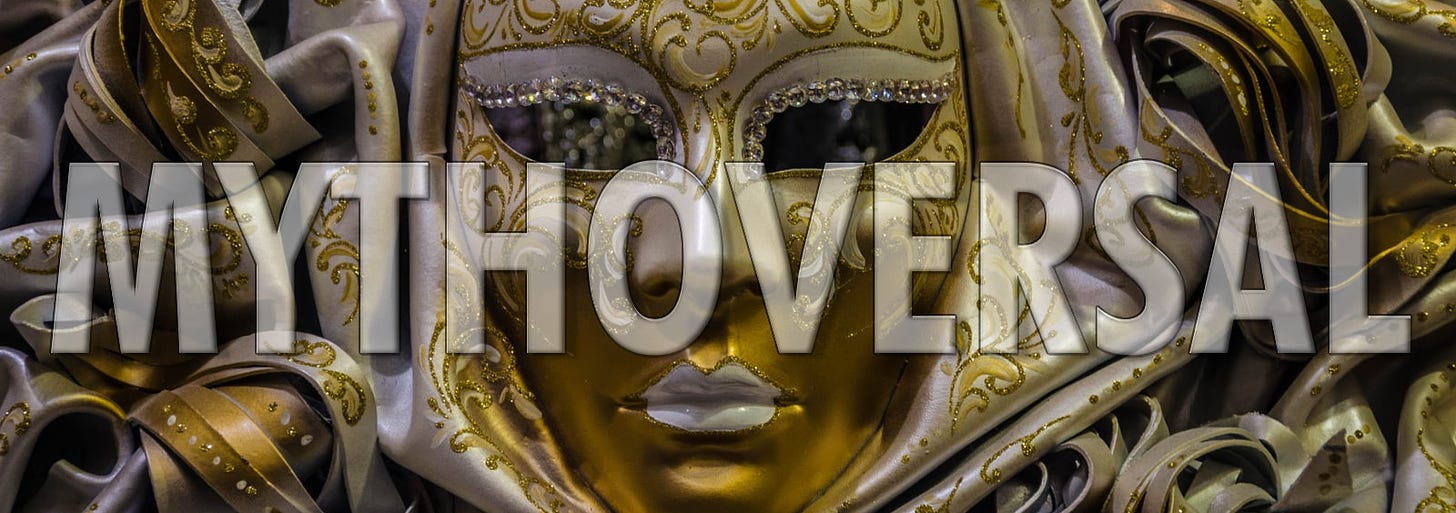Trojan War Wednesday: Ethnic and Racial Diversity in Greek Mythology
Disrupting the Trojan War: Part 2
Overview
This is the second in a planned series of five essays on disrupting ancient texts, focusing on Mythoversal’s disruption of the Trojan War in Rage and Amazons.
Our first essay explored issues of gender and agency in the genre of ancient mythology.
This second essay deals with ethnic and racial diversity.
Restoring Ethnic Diversity
I’m not a scholar, but my best understanding of the scholarship is that Classical sources existed long before our modern concept of race, that Archaic Greece existed before our modern concept of nationality, and that Mediterranean cultures existed before our modern concept of "Western Civilization."
Greek Mythology and Skin Tone
Classical Greek authors observed that people to their south tended to have darker skin, and also that people to their north tended to have lighter skin. These value-neutral observations assigned equal worth and beauty across the entire spectrum of skin tones. Where Homer’s narrative voice favors women with “white arms” and “lovely ankles,” these seem to refer to class and status—a woman who could afford to spend her time out of the sun and off her feet—rather than a racist or colorist preference.
Multicultural Tolerance
Strictly speaking, works of so-called Greek mythology are historical fantasies set in Bronze Age Mycenaean cultures, as told by Greek, Roman, and Byzantine authors. The Mycenaean cultures featured regional variations that separated cities from each other as much as they were separated from the outside world. Even within a region, people could have worshiped different gods, called their gods by different names, or emphasized different aspects of those gods.
And yet, it was generally accepted that these differing gods and traditions were equally valid ways of interpreting the world, whether by the folks on the other side of the river or by those on another continent.
The Multicultural Mixing Bowl
Greek mythology shares Proto-Indo-European roots with Celtic, Germanic, Italic, Persian, and Vedic cultures, and borrowed heavily from the cultures of Northern Africa, Egypt, the Levant, and Anatolia. Analogues of Greek gods, heroes, and stories can be found in all of these cultures.
The so-called Greek myths were actually a mixing bowl of cultures, which spread outward into the multi-ethnic, multi-racial empire of Alexander the Great, and even further into the multi-ethnic, multi-racial empire of Rome.
Homer’s Multicultural Characters
The Epic Cycle, of which Homer’s Iliad and Odyssey are the main surviving parts, included characters from as far away as Ethiopia and Central Asia. The Trojan War itself was an international incident, with the Achaeans coming from Greece to a Troy located in Anatolia. In fact, tradition views Homer as an Anatolian of Greek nationality, which would have given them an affinity for both sides of the conflict.
So What Happened?
We no longer live in the ancient multicultural mixing bowl that forged these stories. We live in the modern world of colonialism, racism, and white supremacy. These stories have dropped into our hands with the accumulated baggage of intervening centuries.
The idea that these stories are meant for everyone has been forgotten. The Trojan War story that once centered Central Asian women has been erased. The Trojan War story that once centered an African prince has been erased. The surviving episodes have been edited by gatekeepers with an agenda. The multi-ethnic warriors who represented the wide variety of Mycenaean cultures and traditions of historical proto-Greece are now all just Greeks.
An ancient heritage has been taken from us. We need to take it back.
Which is why the Mythoversal retelling aims to restore the multicultural origins and refocus on the multicultural characters of the Trojan War. So once again, this effort can be framed as a restoration as much as it is a disruption.
Let me know what you think. Next week, we’ll consider neurodiversity in Greek mythology.
—Greg R. Fishbone, Mythoversal Author-in-Residence
Nine years into the siege of Troy, the greatest Achaean warrior, Achilles, is sidelined by rage and resentment following a conflict with his commander, Agamemnon. This short but intense phase of warfare leads to devastating losses on both sides, conflict among the gods, and great tragedy on a human level.
Rage! is a disruptive retelling of Homer’s Iliad, restoring diversity, inclusion, and equity to a three-thousand-year-old tradition.
This week’s Rage centers on Athena, Goddess of Wisdom and War, as she returns home after a successful intervention with Achilles.
Through retold myths, informational articles, and educational resources, Mythoversal seeks to foster a deeper understanding of traditional cultures, their impact on each other, and on the modern world.
Our entry point into the Mythoverse is the land of Mythoversal Hellas, where we disrupt and deconstruct Greek, Hellenic, Roman, and Byzantine sources to create a mythic environment that's inclusive, inviting, relevant, and welcoming. The result is both a setting and a lens for modern readers.
The Mythoversal Newsletter brings author commentary, mythological movie reviews, and occasional essays to your inbox. If a friend forwarded this issue to you, consider subscribing for yourself to be sure you don't miss any future content.











This is a great summary. Well done.
I am not so sure that the bulk of Greek myths come from Mycenaean Bronze Age times. My sense is that there was a very large disruption at the end of the Bronze Age and that there was collective memory loss around religion, culture, and story. I think a lot of Greek myth was adapted in the Iron Age from the stronger, older traditions in West Asia that survived the collapse of civilization in the eastern Mediterranean. Plus, I feel that if there was a really strong Greek-speaking epic tradition in the Bronze Age we'd have evidence of it from contemporary art at least and possibly also from written Bronze Age sources, if not in Linear B then in other languages. I just see the Mycenaean Bronze Age as a different cultural animal from what emerged in the 8th century in post-Iron Age Greece.
Of course, what I've just said is pure speculation. I'm hoping to get a publisher to fund some research time so I can back this up.